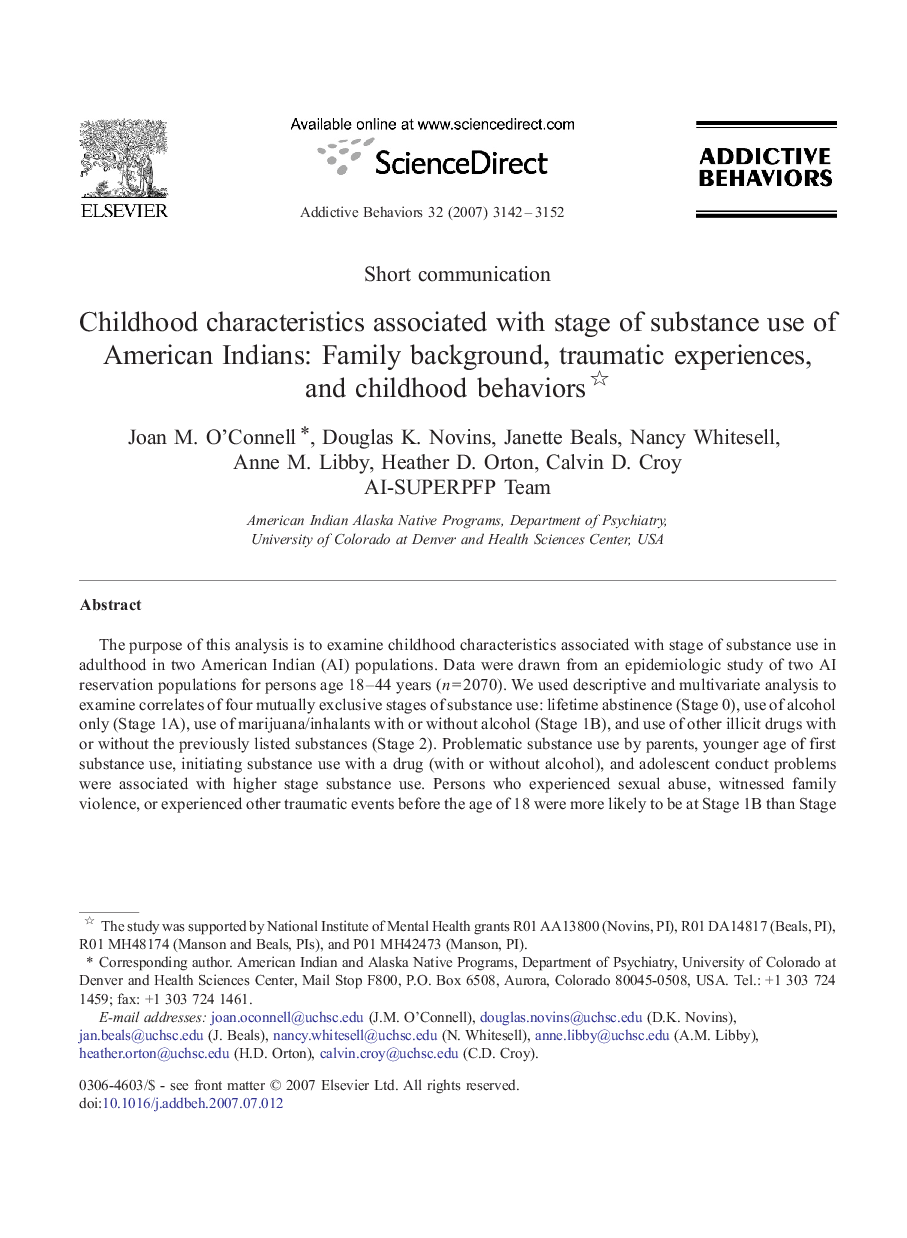| Article ID | Journal | Published Year | Pages | File Type |
|---|---|---|---|---|
| 900066 | Addictive Behaviors | 2007 | 11 Pages |
The purpose of this analysis is to examine childhood characteristics associated with stage of substance use in adulthood in two American Indian (AI) populations. Data were drawn from an epidemiologic study of two AI reservation populations for persons age 18–44 years (n = 2070). We used descriptive and multivariate analysis to examine correlates of four mutually exclusive stages of substance use: lifetime abstinence (Stage 0), use of alcohol only (Stage 1A), use of marijuana/inhalants with or without alcohol (Stage 1B), and use of other illicit drugs with or without the previously listed substances (Stage 2). Problematic substance use by parents, younger age of first substance use, initiating substance use with a drug (with or without alcohol), and adolescent conduct problems were associated with higher stage substance use. Persons who experienced sexual abuse, witnessed family violence, or experienced other traumatic events before the age of 18 were more likely to be at Stage 1B than Stage 1A. These findings underscore the importance of providing effective interventions during childhood and adolescence to reduce the risk of substance use progression.
